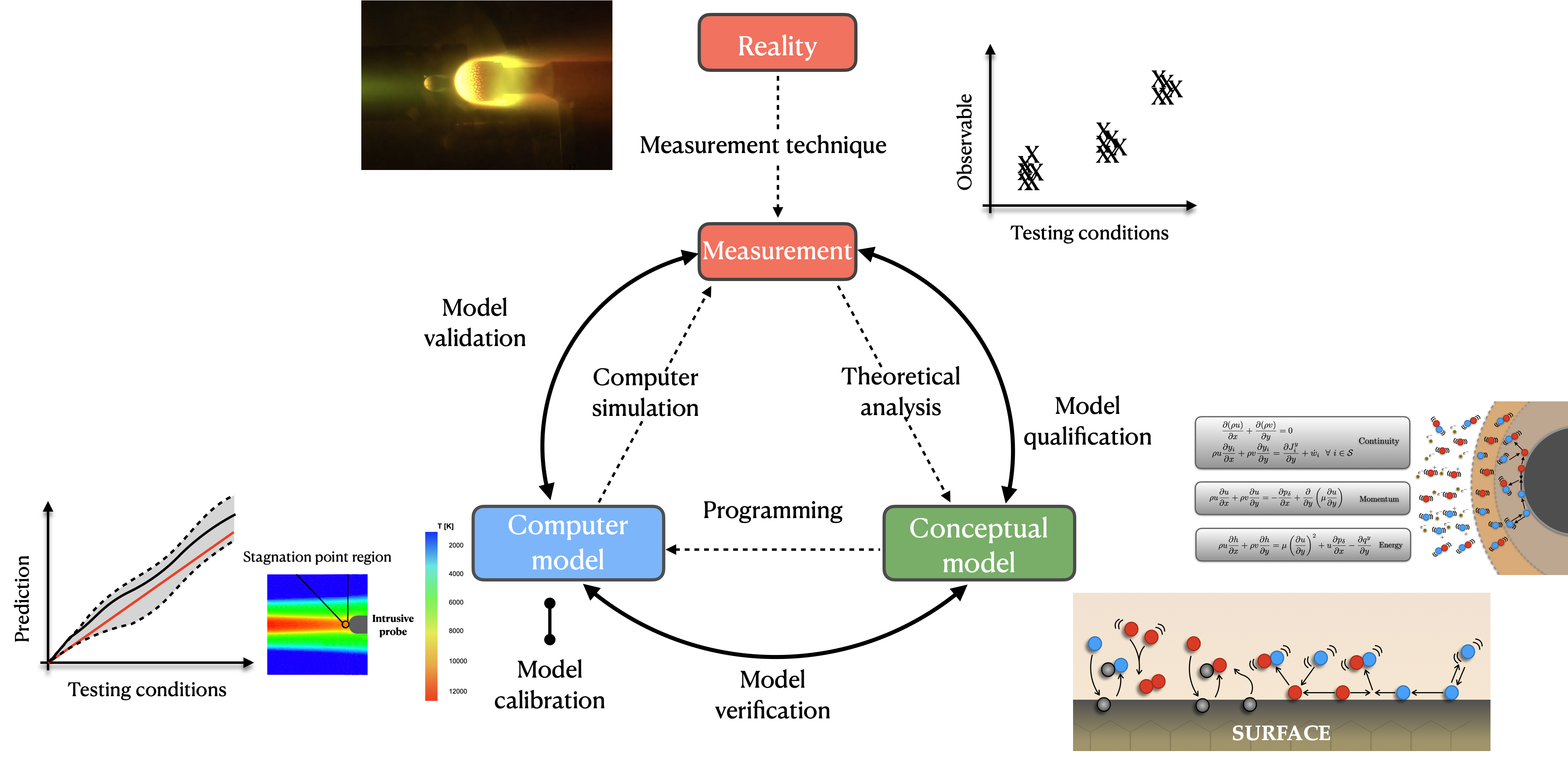Welcome!
We are a research group in the Department of Aerospace Engineering and Mechanics at the University of Minnesota. Our research is focused on advancing our understanding of hypersonic flows by successfully applying stochastic methods to advance the state-of-the-art models, simulations and experiments. The work carried out by the Stochastic Hypersonics Research Group is truly interdisciplinary at the interface of applied mathematics and aerospace engineering. We focus on answering the question: what can we really learn about hypersonics flows with increasingly complex models and experiments? In particular, the role of uncertainties, and how they impact our capabilities to build predictive models and understanding of the physical phenomena involved in these flows, is still very poorly understood. Seeking the answer to this problem, our research bridges the gap between hypersonics and rigorous uncertainty modeling techniques.
Practically speaking, we are focused on the development and application of stochastic methods belonging to the broad areas of sensitivity analysis, surrogate modeling, forward uncertainty propagation, Bayesian inverse problems, optimization under uncertainty, and data-driven approaches, all of them applied to a broad range of problems in hypersonics. We are interested in investigating how to rigorously consolidate, guide and improve the development of models and experiments for high-temperature gas-surface interaction, gas-phase chemical kinetics, boundary layer transition, aerodynamic performance, and shock layer radiation.

If you are a student or postdoc interested in learning about hypersonics and modern stochastic methods consider joining the team! Send an email to Prof. del Val with your CV and briefly outline your research interests.
News
04 Oct. 2024
The Stochastic Hypersonics Research Group Website goes live!
05 Nov. 2024
Prof. del Val presented her research at the 14th Ablation Workshop.
23 Nov. 2024
Madhurima Das got awarded funding from the Undergraduate Research Opportunity Program. Congrats!
10 Dic. 2024
Vincenzo Romano got awarded a FRIA grant. Congratulations!